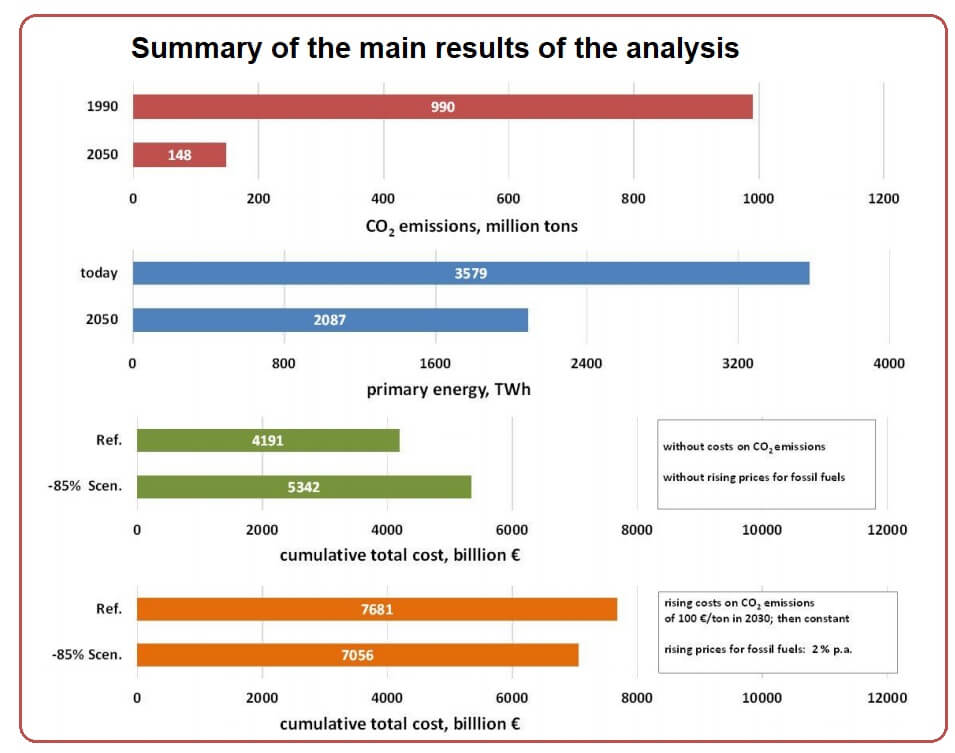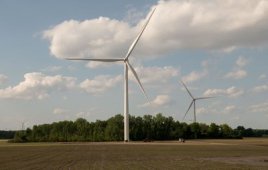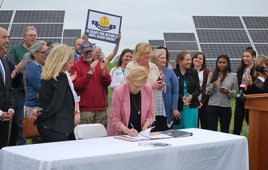Considering all sectors and energy carriers, the model-based study investigates scenarios of system development and related costs to transform Germany’s energy system in line with climate protection targets. Hans-Martin Henning, Andreas Palzer Fraunhofer Institute for Solar Energy Systems ISE, Freiburg
The main goal of the German energy transformation is to reduce its greenhouse gas (GHG) emissions. By 2050, Germany is to decrease its GHG emissions by at least 80, and wherever possible by 95% below 1990 levels. Energy-related CO2 emissions make up the largest share of GHG emissions and account for about 85% of the total GHG emissions in Germany today [1].
To achieve its climate protection targets, the German federal government has declared to fundamentally transform its energy system, requiring a thorough restructuring of the energy system as we know it today. This leads to the guiding question of this study: How can a cost-optimized transformation of the German energy system – with consideration of all energy carriers and consumer sectors – be achieved in line with meeting the declared climate targets and ensuring a secure energy supply at all times. We address this question in the present analysis. In this study, we assume that the nuclear phaseout is successfully achieved by 2022 according to plan and that no large-scale use of carbon capture and storage (CCS) will be implemented for decarbonizing the electricity generation from fossil fuel power plants. Besides environmental sustainability and cost-effectiveness, the model also addresses security of supply, the third aspect of the energy policy triangle, through time-resolved simulations which ensure the energy demand is met each hour throughout the entire year.
Overview showing the main results from the study. Primary energy consumption, CO2 emissions and cumulative total costs for one of the scenarios investigated ( 85% less energy-related CO2 emissions in 2050 than 1990 levels) are compared to the reference case (Ref.) which assumes that Germany’s energy system continues to operate in 2050 as it does today.
The illustration (above) summarizes the main results of the analysis. A future energy scenario emitting 85% less CO2 emissions than 1990 levels is compared with a reference scenario, which assumes that the German energy system operates in 2050 the same way as it does today. Results show that ii) the primary energy in the minus 85% scenario will drop 42% below today’s values by 2050. iii) Assuming that no penalty is imposed on CO2 emissions and the price of fossil energy remains constant, calculations show that the cumulative total costs to maintain and operate today’s energy system will be 27% less than transforming the energy system to the targeted minus 85% scenario. iv) On the other hand, if the penalty for CO2 emissions increases to €100/ton by 2030 and thereafter remains constant and given that fossil fuel prices increase annually by 2%, then the total cumulative costs of today’s energy system (Reference) are 8% higher than the costs required for the minus 85% scenario up to 2050.
For the rest of the summary: https://goo.gl/CKFzrr
For the full report: https://goo.gl/g7m3AU
Filed Under: Uncategorized





